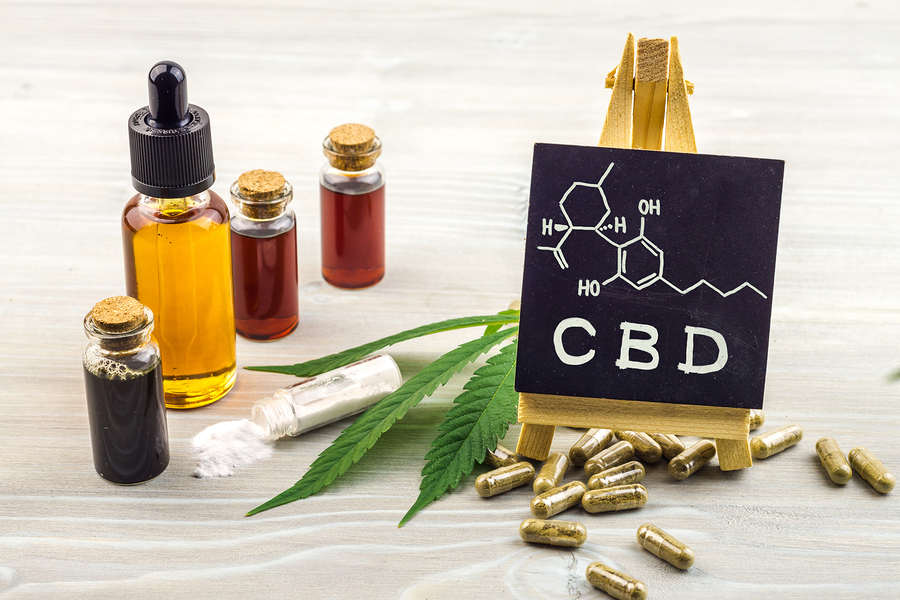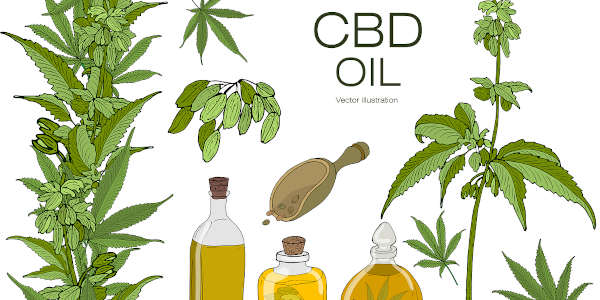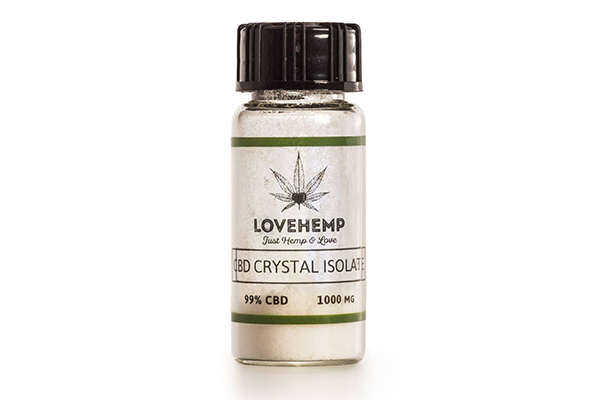The popularity of CBD oil has grown enormously in recent times.
CBD oil is sold as a dietary supplement, in the form of oil and capsules, and as a component of other products, such as skincare products.
The CBD oil received massive attention in 2013 when CNN broadcast a documentary about a three-year-old American girl with epilepsy.
Charlotte Figi suffered violent attacks (up to 200 a week) from her first months of life and her parents got rid of these attacks with the help of CBD oil.
Since then, people from all over the world have been looking for good CBD oil to use for different medical conditions.
Epilepsy patients are not the only ones who claim that CBD oil as a beneficial effect on them.
Although not all claims are scientifically established yet, according to users, the oil offers support for many physical and mental conditions like stress-related problems, sleeping problems, mood changes, depression, and various pain complaints.
People with ADHD, Parkinson’s disease, a migraine, and rheumatic illness also report about positive experiences with CBD oil.
There is no scientific indication that CBD oil heals disorders. But it can, however, help to reduce symptoms.
What is CBD exactly?
Cannabidiol (CBD) is a non-psychoactive cannabinoid that occurs in cannabis and has pharmacological interactions with tetrahydrocannabinol.
CBD inhibits the breakdown of THC by the liver enzymes. Cannabidiol makes up about 3-4% of a cannabis extract.
Cannabidiol was first isolated in 1940, but its chemical structure and stereochemistry were clarified in 1964.
Its mechanism of action is independent of the cannabinoid receptors. CBD has a very low affinity for the cannabinoid receptors (CB-1 and CB-2 ).
CBD works as an antipsychotic and sedative in laboratory animals.
CBD is the only cannabinoid with which various controlled experimental studies and some human clinical studies have been conducted in multiple scleroses, neuropathic pain, schizophrenia, bipolar mania, social phobia, insomnia, Huntington’s disease and epilepsy.
In laboratory animals, CBD has anti-epileptic, anti-emetic, anti-inflammatory and antipsychotic properties and is also effective against rheumatoid arthritis.
CBD also appears to be effective against toxicity due to N-methyl-D-aspartic acid and beta-amyloid, as well as ischemic damage.
CBD also has a neuroprotective effect in various ways and may, therefore, be significant in a cerebrovascular accident, Parkinson’s disease, traumatic brain damage, and epilepsy.
CBD has almost no side effects, nor psychoactive effect, nor is there a risk of addiction.
Anxiety and stress
One of the most common applications of CBD oil is to relieve stress and anxiety.
In 2011, scientists published an article in the Journal of Psychopharmacology following a study into the relationship between CBD and social anxiety disorders.
It is suggested that CBD can provide relief to people with an anxiety disorder.
Another study from the same year found that preventive administration of CBD to public speakers significantly reduced anxiety, stress, and discomfort.
Pain relief
CBD oil is regularly used by people suffering from pain such as people with rheumatism (especially fibromyalgia) and osteoarthritis.
A study with laboratory animals (2012) has shown that CBD can suppress inflammatory and neuropathic pain.
Tests done on mice in 2005 showed that CBD can have a positive effect on osteoarthritis.
More research should be done and especially on humans, but it likely that CBD acts on cannabinoid receptors and causes the nervous system to ignore pain.
The University of Nottingham did research and discovered that cannabis oil not only affects the central nervous system and thus reduces pain, but also reduces inflammation in joints.
The relaxing effect of CBD oil would also help to relieve stress and pain.
Sleeping problems
CBD is used by many people with sleeping problems.
It helps relax the muscles, allowing you to sleep more deeply.
Although there are many positive claims, not everything is scientifically substantiated.
Diabetes
There have been several studies that looked at the effect of CBD on diabetes.
These indicate that CBD can help to stabilize blood sugar levels and, if possible, relieve diabetes symptoms.
Research on people is not (yet) available.
In a 2006 study with diabetic mice, the mice were given cannabidiol (CBD), this study showed that CBD may delay or even prevent destructive insulitis (Disease of the pancreas caused by the infiltration of lymphocytes.).
The scientific research in mice has discovered that the anti-inflammatory properties that CBD possesses can possibly be used for all kinds of different diseases, including type 2 diabetes.
Parkinson‘s disease
Many people with Parkinson also use cannabis oil against spasms and muscle tension.
In Parkinson‘s disease, both CBD oil and THC oil are usually used.
There is little scientific research on CBD / THC and its effects on Parkinson’s.
The studies that have been done are slightly positive or neutral.
In a study done by the University of São Paulo, the researchers found that there are indications of a positive effect on the quality of life when using CBD in patients with Parkinson’s.
However, they believe that more research is needed to come to definitive conclusions.
What is the difference between cannabis oil and CBD oil?
Weed plants and hemp plants are not the same plants but come from the same (cannabis) family and can, therefore, be called both cannabis plants.
When you read something about cannabis somewhere, it can, therefore, be about both hemp oil and weed oil (marijuana).
The biggest and most important difference between hemp plants and cannabis plants is the fact that hemp plants contain no or hardly any THC and a lot of CBD.
Weed plants contain a lot of THC and little CBD.
Oil with THC (weed oil) is not legal for sale in many countries and in some countries, it is only available with a prescription.
CBD oil is completely legal for sale in most European countries.
However, both THC and CBD are said to have major medicinal benefits. As a result, both types of oil are also referred to as medicinal cannabis oil.
Does CBD oil get you high?
You will certainly not get high from CBD oil.
Cannabidiol comes from the hemp plant, but is not addictive, it has no psychoactive effects and does not cause hallucinations.
THC (tetrahydrocannabinol) is the psychoactive substance in the cannabis oil that provides a ‘high‘ feeling.
Using CBD
CBD oil is taken orally. You hold the drops under your tongue and then swallow them.
The oral mucosa absorbs the active substance quickly.
It may also be taken with a piece of bread, or — if you have trouble with the taste — in capsule form.
CBD Dosage
The correct dose of CBD oil is highly dependent on the complaints for which you use the oil.
Moreover, everyone responds differently.
It is therefore primarily a matter of trying.
Start with a low dose (for example two drops per day) and build this up slowly until you have found an effective dose for you.
It can take a while for CBD oil to take effect, so give it a chance for a few weeks to decide whether it is for you.
CBD oil is available in various concentrations, from 2.5 percent to even 10 percent, with 5 percent being used the most.
A lower concentration of CBD is often used as a preventative measure or is used for mild or early symptoms.
Always consult your doctor and continue to do so during use.
Where to buy CBD oil?
We reccomend the UK CBD online shop – canabd.com.




